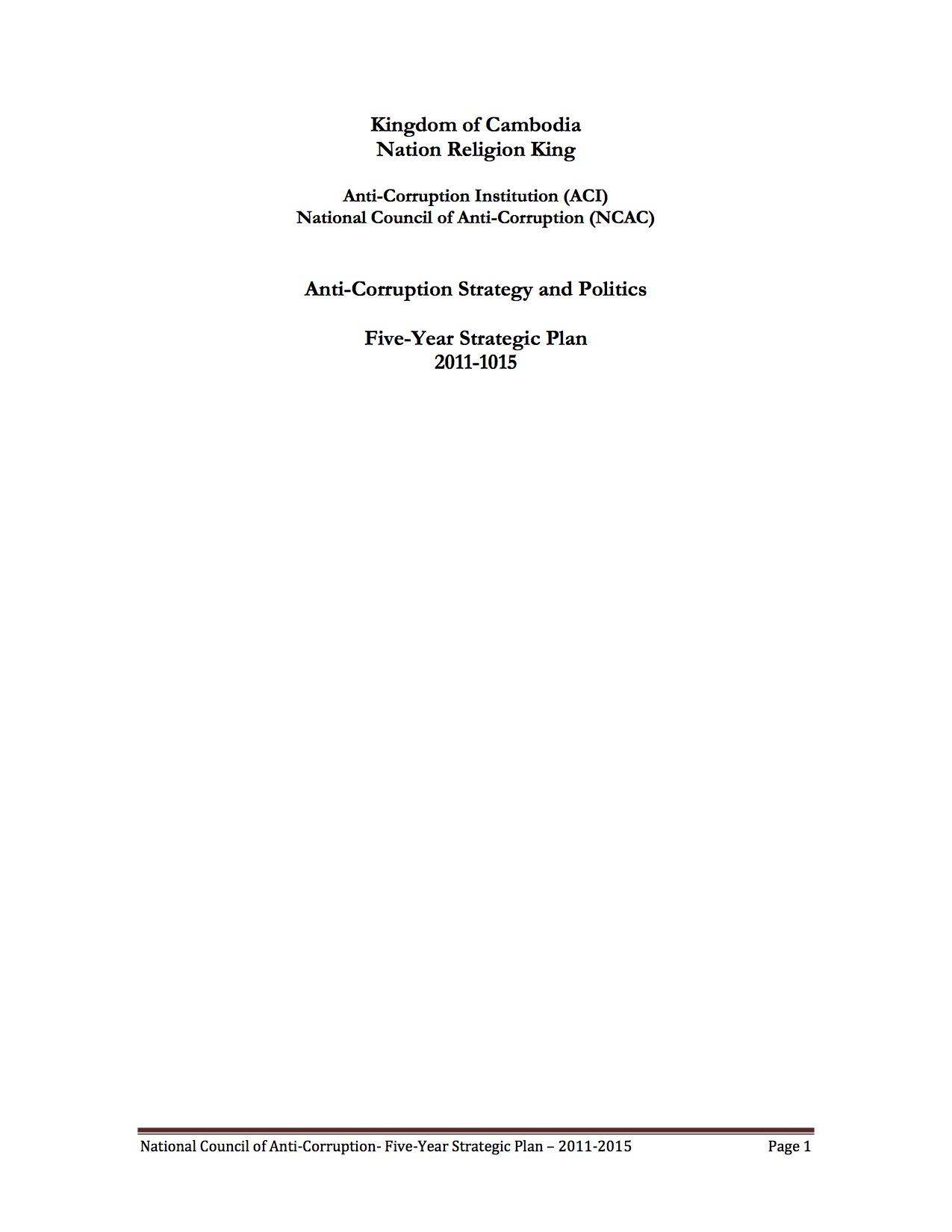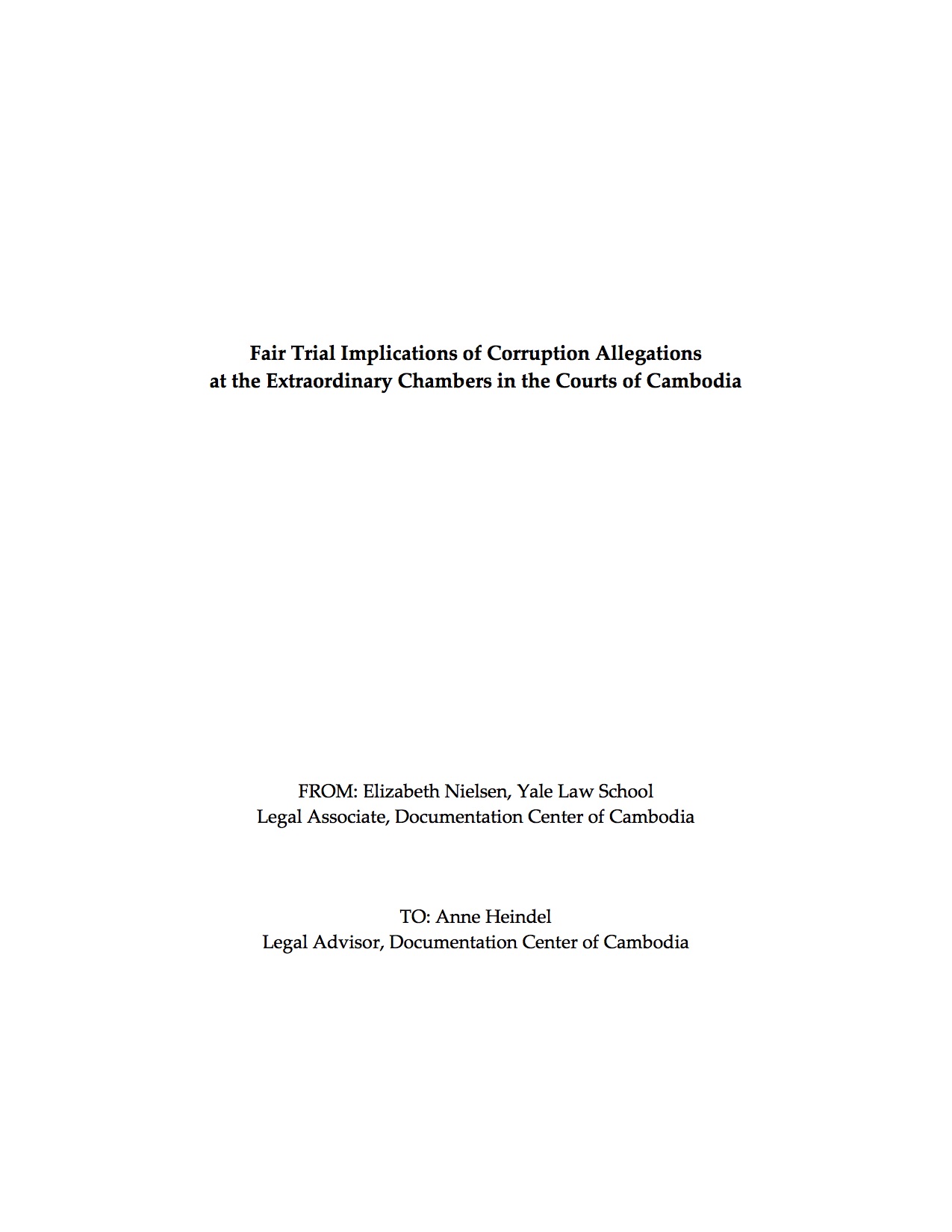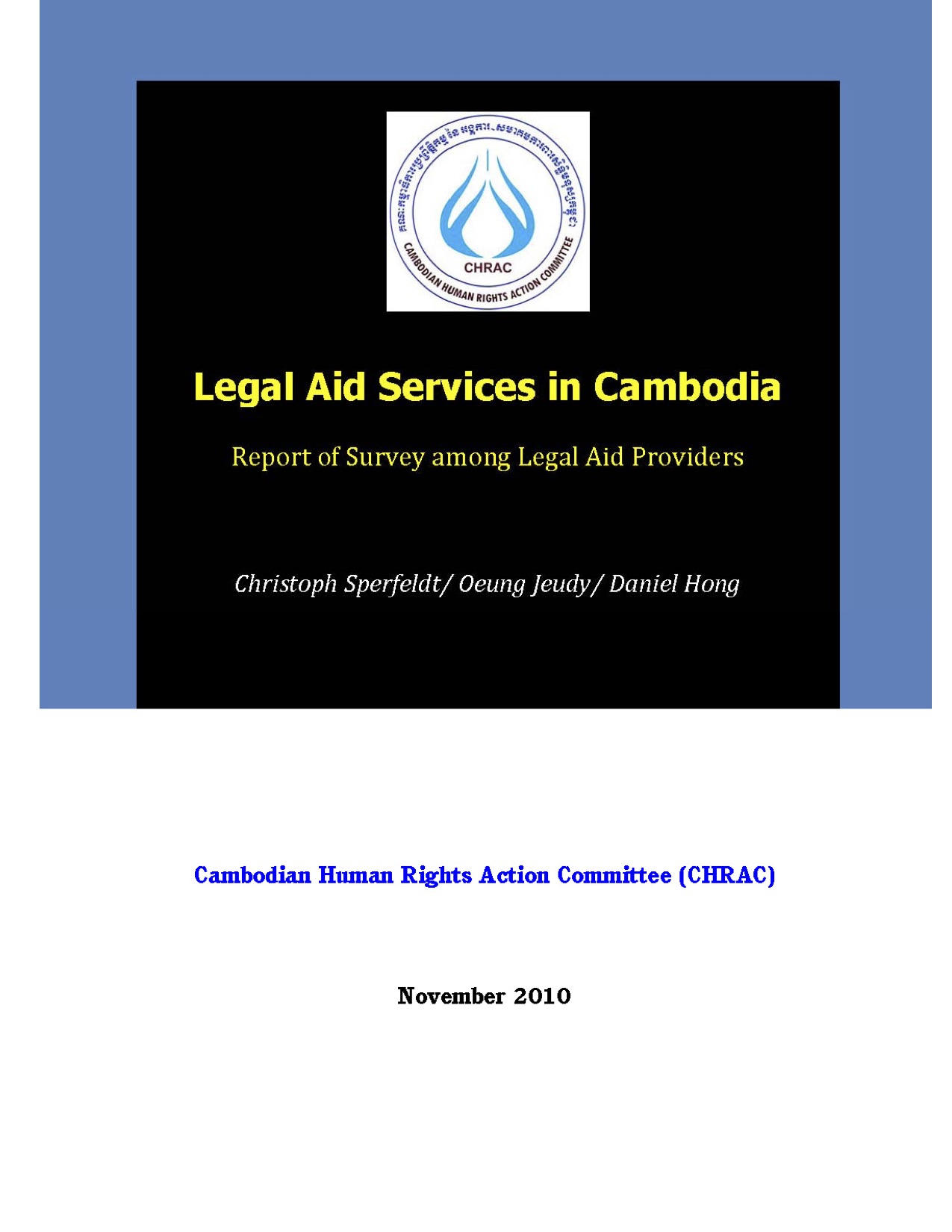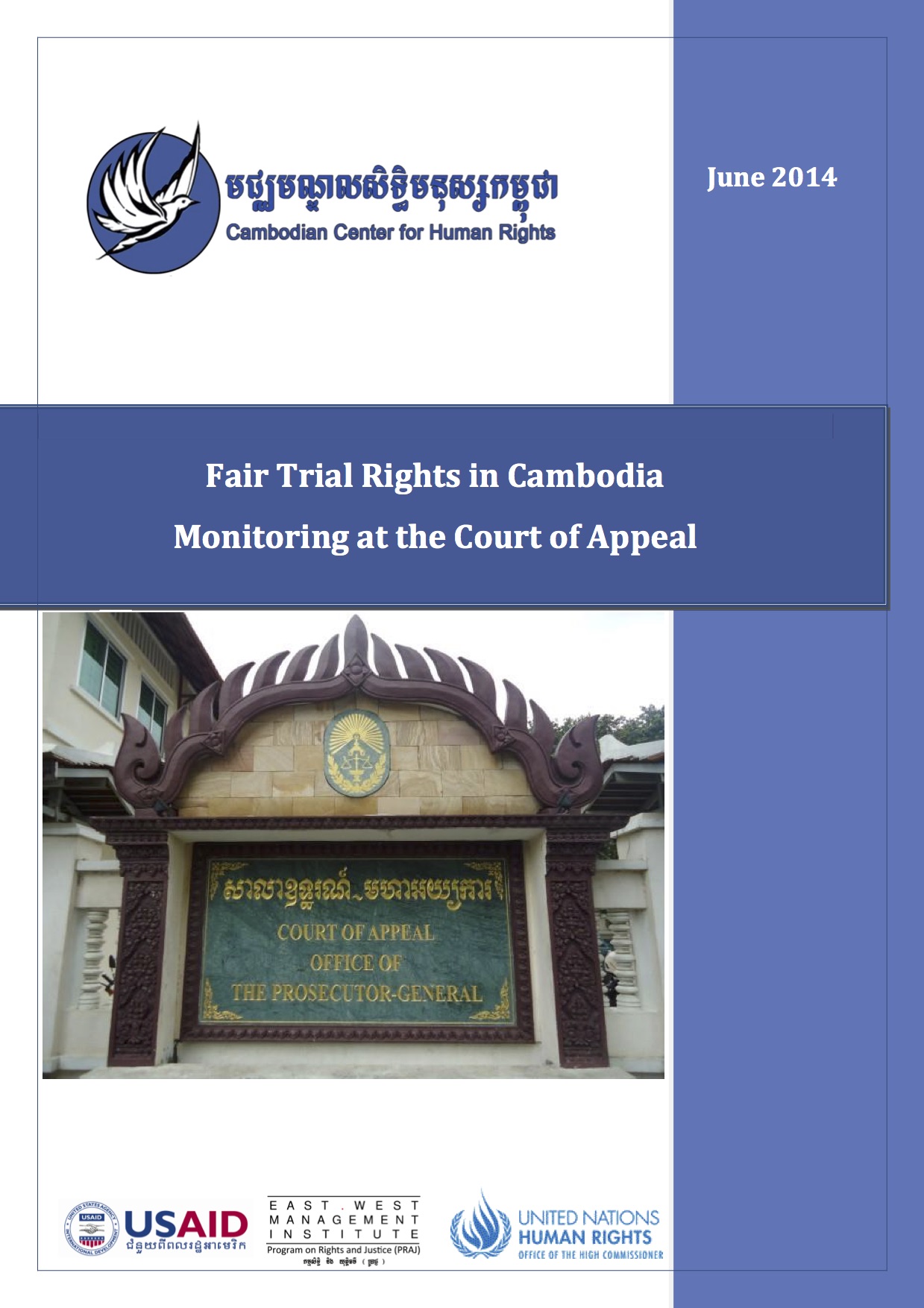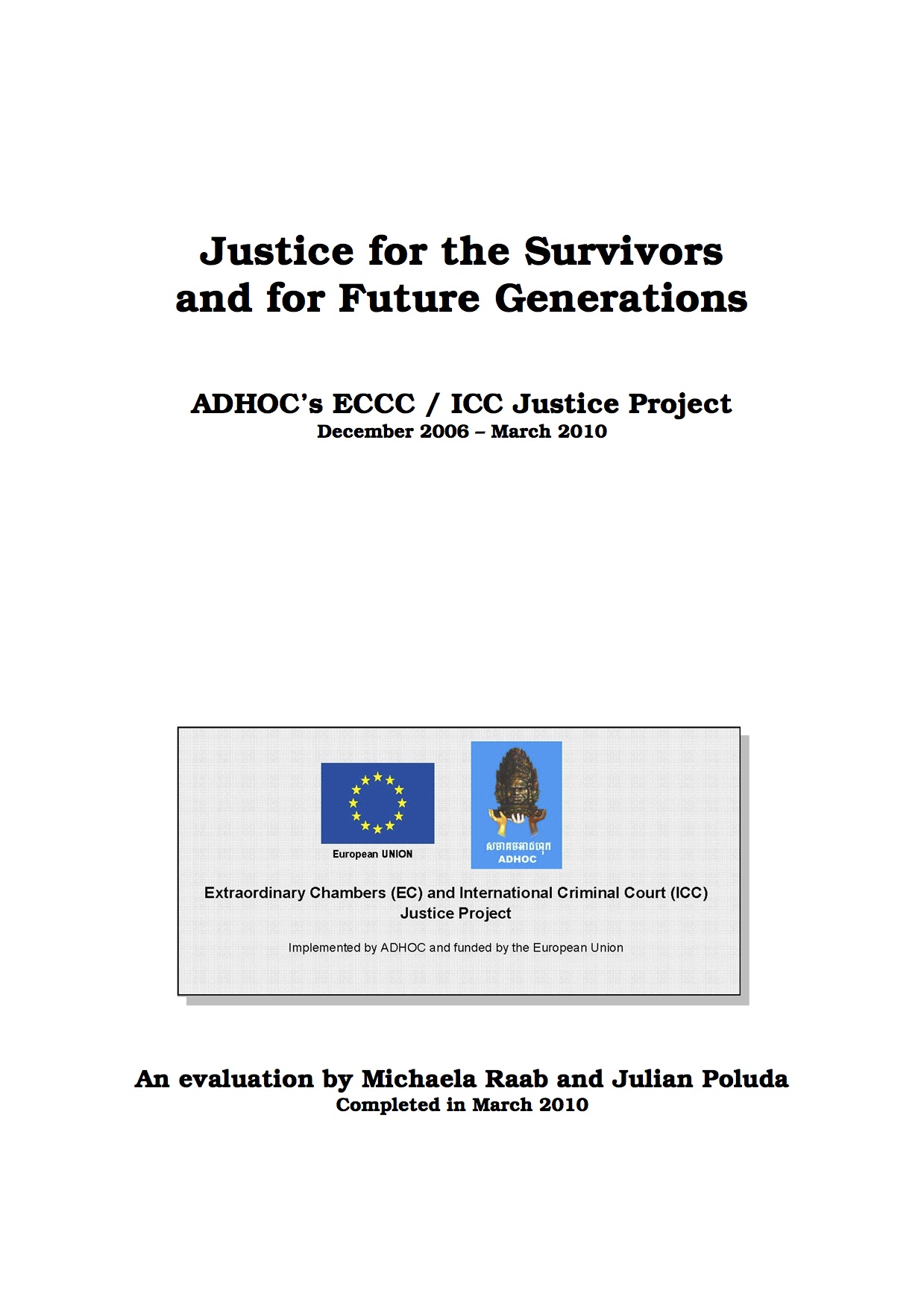Latest Entries
Anti-Corruption Strategy and Politics
Publication Year: 2011-2015 / Sources: National Council of Anti-CorruptionFor the Royal Government of Cambodia (RGC), good governance is the crucial sine qua non to achieve the sustainable and equitable economic development and social justice. Good governance requires dynamic participation and determination from various sectors in the society with accountability, transparency, equity, inclusiveness and the rule of law. The RGC always considers corruption as an obstacle to economic development, rule of law, democracy, social stability; and it is also the cause of poverty.
Fair Trial Implications of Corruption Allegations at the Extraordinary Chambers in the Courts of Cambodia
Publication Year: -- / Sources: Documentation Center of CambodiaThe right to a hearing before an independent and impartial court is a cornerstone of fair trial practice in both international and domestic law. An independent and impartial court or tribunal is a requirement of customary international law, as well as of all general universal and regional human rights instruments. Domestic legal systems contain similar requirements; most relevant to the ECCC is the Constitution of the Kingdom of Cambodia, which provides that the judiciary “shall be an independent power” that “shall guarantee and uphold impartiality and protect the rights and freedoms of the citizens.” In accordance with these standards, ECCC law has incorporated independence and impartiality requirements. This memo will address the fair trial implications of administrative and judicial corruption if members of the Office of Administration and judges at the ECCC engage in a kickback system in exchange for employment.
Legal Aid Services in Cambodia
Publication Year: 2010 / Sources: Cambodian Human Rights Action Committee (CHRAC)This paper aims at informing these discussions about an integrated and inclusive legal aid framework through the following objectives: (1) updating the numbers of available (fulltime) legal aid lawyers in Cambodia, since it is assumed that there have been changes since the 2006 survey; (2) identifying the presence of legal aid lawyers outside the capital in the provinces and corresponding regional gaps in the provision of services; (3) providing an indication about the capacity of these legal aid providers (i.e. the number of cases they are dealing with); and (4) identifying the thematic specialization of existing legal aid providers (i.e. whether they focus on general legal aid or on specific target groups). In addition, the question was asked at the end of each interview about the respondents’ opinion on what needs to be done to improve the situation of legal aid services in Cambodia. Fact sheets in annex summarize key features of each interviewed legal aid providers.
Fair Trial Rights in Cambodia Monitoring at the Court of Appeal
Publication Year: 2014 / Sources: Cambodian Center for Human Rights (CCHR)The functioning of the judiciary has been among the major human rights concerns in Cambodia for some time, central as it is to the protection and enforcement of other rights and the establishment of the rule of law. Although there have been steady improvements in the adherence to some of the procedures that underpin fair trial rights within the Cambodian judiciary, many areas of concern remain. One of the major issues that impacts upon fair trial rights in Cambodia is the lack of separation of powers and the continued influence that the executive exert on the judiciary.
CCHR’s Trial Monitoring Project (the “Project”) has collected data from the monitoring of 204 criminal trials at the Court of Appeal between 1 March 2013 and 31 January 2014 (the “Reporting Period”) in order to assess its adherence to fair trial rights as set out in international and Cambodian law. The Report presents and analyzes the data collected during the Reporting Period.
Justice for the Survivors and for Future Generations
Publication Year: 2010 / Sources: ADHOC, Extraordinary Chambers (EC), International Criminal Court (ICC)The ECCC / ICC Justice project, built on ADHOC’s and its partners’ strengths, has fulfilled and surpassed its goals. It has promoted justice for the victims of the Khmer Rouge regime by (1) dramatically influencing the shape and course of the Khmer Rouge Trials and (2) animating a sustained, nation-wide debate on Khmer Rouge crimes. Complementary project activities around the ICC were somewhat clouded by the urgency and prominence of ECCC- related work; nevertheless they constituted a key input to integrating the Rome Statute into Cambodian law.

